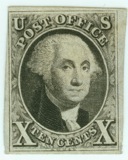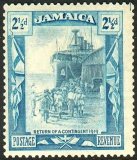
Discussion - Member to Member Sales - Research Center

Discussion - Member to Member Sales - Research Center


Enjoy your day,
Linus



3 Members
like this post.
Login to Like.
Looks like it contained two Pheasants from the senders estate.

2 Members
like this post.
Login to Like.
Aw yes! I wondered about that.
Pheas. = Pheasants
Part. = Partridges
Rab. = Rabbits
Thanks sheepshanks! It makes so much more sense now. No wonder he wanted it "DELIVERED IMMEDIATELY."
The next question, were the pheasants alive in a cage, or dressed and packed in ice?

1 Member
likes this post.
Login to Like.
The brace of pheasants would have been dead, un-plucked and wrapped in brown paper.
On arrival they would have been hung for a few days, then plucked and roasted.

3 Members
like this post.
Login to Like.
Interestingly, there is a short wikipedia article on Sir Alfred Jodrell, according to which he was "a noted public benefactor", and a longer one on his place of residence, Bayfield Hall. You've got a little piece of history here indeed.

Login to Like
this post
Thank you Martin, and thank you Ian, for the additional information. We all have little pieces of history in our collections. I should dig out something else from my horde and see what story it tells. It is too hot today to work outside.
Linus
https://en.wikipedia.org/wiki/Alfred_Jodrell
https://en.wikipedia.org/wiki/Bayfield_Hall
The last paragraph from this article:
Jodrell was also noted for his generosity to people. He would send a basket of fresh fruit and vegetables every week to the Norfolk and Norwich Hospital in Norwich. At Christmas time he sent the hospital 40 chickens and 40 turkeys plucked and oven ready. He gave generously to many charities and good causes especially to his locality. His generosity extended to his friends as well. He was known for his hosted dinners where he served the finest food and wine to his guest, although he himself abstained from alcohol. He once hosted King George V who visited from his Norfolk home at Sandringham to attend a pheasant shoot on the estate organized by Jodrell. Jodrell was also a keen collector and had collections of teapots and ceramic birds although he is best known for his collection of seashells. He had a museum built next to St Martine's church to house the shell collection. The museum can still be visited to this day.

Login to Like
this post

I finished my second cutting of hay before it rained, a good feeling for any farmer knowing you have enough hay to last a year, now in the barn, so time to slow down and dabble with my stamp collection. I came across this item in my WW block collection to share with the club. This is an old GB baggage tag, with the common Queen Victoria Scott #89 in a block of 7, with a smudgy, unreadable cancel, addressed to Harry Seale (or Leale) at Eton College. I like the wording at the top, "DELIVER IMMEDIATELY PERIOD." I can imagine this piece being attached to some piece of luggage loaded onto an old steam train headed off to college. If only it was addressed to Harry Potter, and Hogwarts, I would have hit $$$. 
Enjoy your day,
Linus



3 Members
like this post.
Login to Like.

re: Interesting Old Great Britain Tag
Looks like it contained two Pheasants from the senders estate.

2 Members
like this post.
Login to Like.

re: Interesting Old Great Britain Tag
Aw yes! I wondered about that.
Pheas. = Pheasants
Part. = Partridges
Rab. = Rabbits
Thanks sheepshanks! It makes so much more sense now. No wonder he wanted it "DELIVERED IMMEDIATELY."
The next question, were the pheasants alive in a cage, or dressed and packed in ice?

1 Member
likes this post.
Login to Like.

Auctions - Approvals
re: Interesting Old Great Britain Tag
The brace of pheasants would have been dead, un-plucked and wrapped in brown paper.
On arrival they would have been hung for a few days, then plucked and roasted.

3 Members
like this post.
Login to Like.

re: Interesting Old Great Britain Tag
Interestingly, there is a short wikipedia article on Sir Alfred Jodrell, according to which he was "a noted public benefactor", and a longer one on his place of residence, Bayfield Hall. You've got a little piece of history here indeed.

Login to Like
this post

re: Interesting Old Great Britain Tag
Thank you Martin, and thank you Ian, for the additional information. We all have little pieces of history in our collections. I should dig out something else from my horde and see what story it tells. It is too hot today to work outside.
Linus
https://en.wikipedia.org/wiki/Alfred_Jodrell
https://en.wikipedia.org/wiki/Bayfield_Hall
The last paragraph from this article:
Jodrell was also noted for his generosity to people. He would send a basket of fresh fruit and vegetables every week to the Norfolk and Norwich Hospital in Norwich. At Christmas time he sent the hospital 40 chickens and 40 turkeys plucked and oven ready. He gave generously to many charities and good causes especially to his locality. His generosity extended to his friends as well. He was known for his hosted dinners where he served the finest food and wine to his guest, although he himself abstained from alcohol. He once hosted King George V who visited from his Norfolk home at Sandringham to attend a pheasant shoot on the estate organized by Jodrell. Jodrell was also a keen collector and had collections of teapots and ceramic birds although he is best known for his collection of seashells. He had a museum built next to St Martine's church to house the shell collection. The museum can still be visited to this day.

Login to Like
this post

